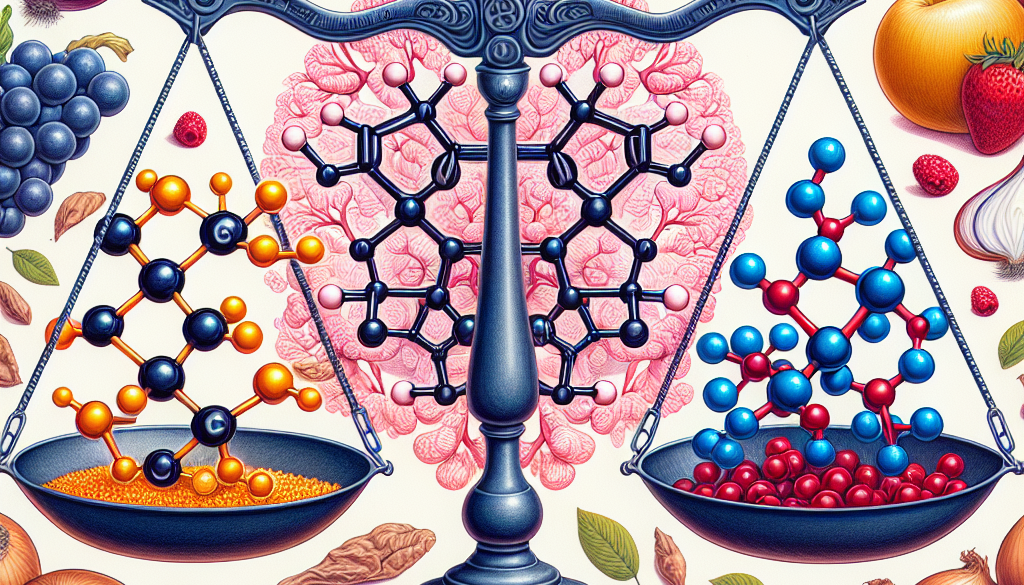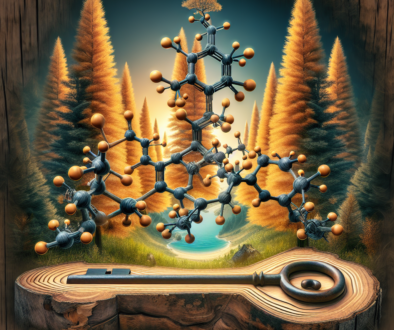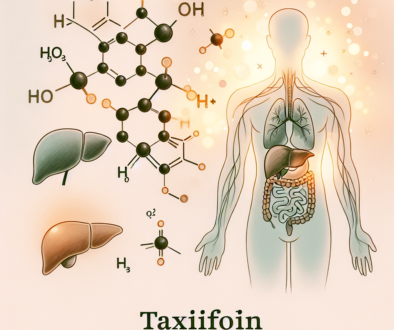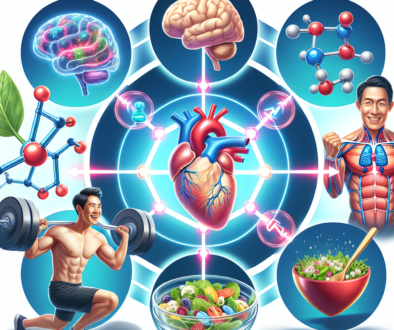Which is better quercetin or fisetin?
-
Table of Contents
- Quercetin vs. Fisetin: Which Flavonoid Reigns Supreme?
- Understanding Quercetin and Fisetin
- Quercetin
- Fisetin
- Comparing Health Benefits
- Quercetin’s Health Benefits
- Fisetin’s Health Benefits
- Scientific Research and Studies
- Quercetin Research
- Fisetin Research
- Safety and Side Effects
- Quercetin Safety
- Fisetin Safety
- Conclusion: Which Is Better?
- ETprotein: Your Source for High-Quality Protein Products
Quercetin vs. Fisetin: Which Flavonoid Reigns Supreme?
Flavonoids are a diverse group of phytonutrients found in almost all fruits and vegetables. Among these, quercetin and fisetin have gained significant attention for their potential health benefits. Both compounds are known for their antioxidant properties and have been the subject of numerous studies. In this article, we will delve into the science behind quercetin and fisetin to determine which one might be the better choice for your health needs.
Understanding Quercetin and Fisetin
Before we compare the two, let’s first understand what quercetin and fisetin are and where they can be found.
Quercetin
Quercetin is a flavonol, a type of flavonoid, that is abundant in many fruits, vegetables, and grains. It is known for its anti-inflammatory and antioxidant effects. Foods rich in quercetin include onions, apples, berries, and capers.
Fisetin
Fisetin, on the other hand, is a less well-known flavonoid that is present in smaller amounts in the diet. It is found in fruits such as strawberries and apples, as well as in vegetables like onions and cucumbers. Fisetin has been studied for its neuroprotective and anti-aging properties.
Comparing Health Benefits
Both quercetin and fisetin have been linked to a variety of health benefits. Let’s explore some of the research surrounding each.
Quercetin’s Health Benefits
- Anti-inflammatory: Quercetin has been shown to reduce inflammation, which is a common factor in many chronic diseases.
- Antioxidant: It acts as an antioxidant, neutralizing free radicals that can cause cellular damage.
- Heart Health: Studies suggest that quercetin may improve blood pressure levels and reduce the risk of heart disease.
- Allergy Relief: Quercetin can help stabilize mast cells, which may reduce histamine release and alleviate allergy symptoms.
Fisetin’s Health Benefits
- Neuroprotection: Fisetin has been found to have neuroprotective effects, potentially benefiting conditions like Alzheimer’s disease.
- Anti-aging: Research indicates that fisetin may have anti-aging properties by reducing the accumulation of senescent cells.
- Cancer: Some studies have shown that fisetin can inhibit the growth of various cancer cells.
- Diabetes: Fisetin may help improve blood sugar control and reduce complications associated with diabetes.
Scientific Research and Studies
When it comes to scientific evidence, both quercetin and fisetin have been the subject of numerous studies. Here are some key findings:
Quercetin Research
Quercetin has been extensively studied for its potential to improve various health conditions. For example, a study published in the “Journal of Nutrition” found that quercetin supplementation could reduce blood pressure in hypertensive patients. Another study in “The American Journal of Clinical Nutrition” suggested that quercetin might help reduce the risk of coronary heart disease.
Fisetin Research
Fisetin, while less researched than quercetin, has shown promising results in the areas of neuroprotection and longevity. A study in the “Aging Cell” journal demonstrated that fisetin could reduce the burden of damaged cells in mice, leading to extended healthspan. Additionally, research in “The Journal of Biological Chemistry” has highlighted fisetin’s potential to protect neurons in the brain.
Safety and Side Effects
Both quercetin and fisetin are generally considered safe when consumed in amounts typically found in a diet rich in fruits and vegetables. However, when it comes to supplements, it’s essential to consider potential side effects and interactions.
Quercetin Safety
Quercetin supplements are well-tolerated by most people, but high doses may cause headaches and tingling in the arms and legs. It can also interact with certain medications, such as blood thinners and antibiotics.
Fisetin Safety
Fisetin is less studied in human populations, but animal studies have not shown significant adverse effects. As with any supplement, it’s crucial to consult with a healthcare provider before starting fisetin, especially for those on medication or with existing health conditions.
Conclusion: Which Is Better?
Deciding whether quercetin or fisetin is better depends on individual health goals and needs. Quercetin has a broader base of research supporting its benefits for heart health, inflammation, and allergies. Fisetin, while less studied, shows promise in the areas of neuroprotection and anti-aging.
Ultimately, both flavonoids offer unique benefits, and incorporating a variety of flavonoid-rich foods into your diet is likely the best approach. For those considering supplements, it’s essential to consult with a healthcare professional to determine the most appropriate choice based on personal health considerations.
ETprotein: Your Source for High-Quality Protein Products
If you’re looking to enhance your health regimen with high-quality protein products, ETprotein offers a range of organic bulk vegan proteins and L-(+)-Ergothioneine (EGT) that cater to various industries. Their products are characterized by a neutral taste, non-GMO, allergen-free attributes, and high purity levels, making them an excellent choice for those seeking comprehensive protein solutions.
About ETprotein:
ETprotein, a reputable protein and L-(+)-Ergothioneine (EGT) Chinese factory manufacturer and supplier, is renowned for producing, stocking, exporting, and delivering the highest quality organic bulk vegan proteins and L-(+)-Ergothioneine. They include Organic rice protein, clear rice protein, pea protein, clear pea protein, watermelon seed protein, pumpkin seed protein, sunflower seed protein, mung bean protein, peanut protein, and L-(+)-Ergothioneine EGT Pharmaceutical grade, L-(+)-Ergothioneine EGT food grade, L-(+)-Ergothioneine EGT cosmetic grade, L-(+)-Ergothioneine EGT reference grade and L-(+)-Ergothioneine EGT standard. Their offerings, characterized by a neutral taste, non-GMO, allergen-free attributes, with L-(+)-Ergothioneine purity over 98%, 99%, cater to a diverse range of industries. They serve nutraceutical, pharmaceutical, cosmeceutical, veterinary, as well as food and beverage finished product distributors, traders, and manufacturers across Europe, USA, Canada, Australia, Thailand, Japan, Korea, Brazil, and Chile, among others.
ETprotein specialization includes exporting and delivering tailor-made protein powder and finished nutritional supplements. Their extensive product range covers sectors like Food and Beverage, Sports Nutrition, Weight Management, Dietary Supplements, Health and Wellness Products, and Infant Formula, ensuring comprehensive solutions to meet all your protein needs.
As a trusted company by leading global food and beverage brands and Fortune 500 companies, ETprotein reinforces China’s reputation in the global arena. For more information or to sample their products, please contact them and email sales(at)ETprotein.com today.












